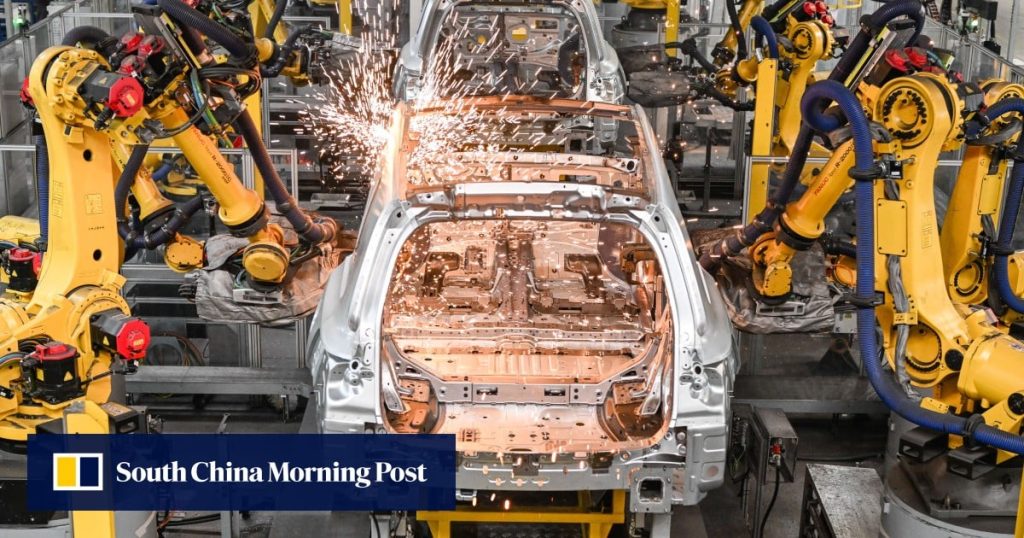The electric vehicle (EV) industry, formerly one of China’s most inward-focused industrial sectors, is now leading a push overseas, carrying the government’s hopes of forging an offshore economic empire to sidestep cutthroat competition at home.
Last year, for the first time, Chinese EV companies invested more overseas than they did at home, despite higher costs, delays and risks abroad, according to a report published by Rhodium Group on Monday.
That marked a historic shift after years of directing around 80 per cent of investment to the domestic market, the research group said.
Overseas investment lagged far behind domestic spending before 2022, as policy support propelled China’s annual EV supply chain investment to an average of US$92 billion in 2021 and 2022, the report said. The gap then began to close, and by 2024, foreign investment had edged past domestic outlays, which had fallen to just US$15 billion.
At home, factories assembling EVs were operating at just 49 per cent capacity in 2023 and battery factories at 36.5 per cent, the report said.


